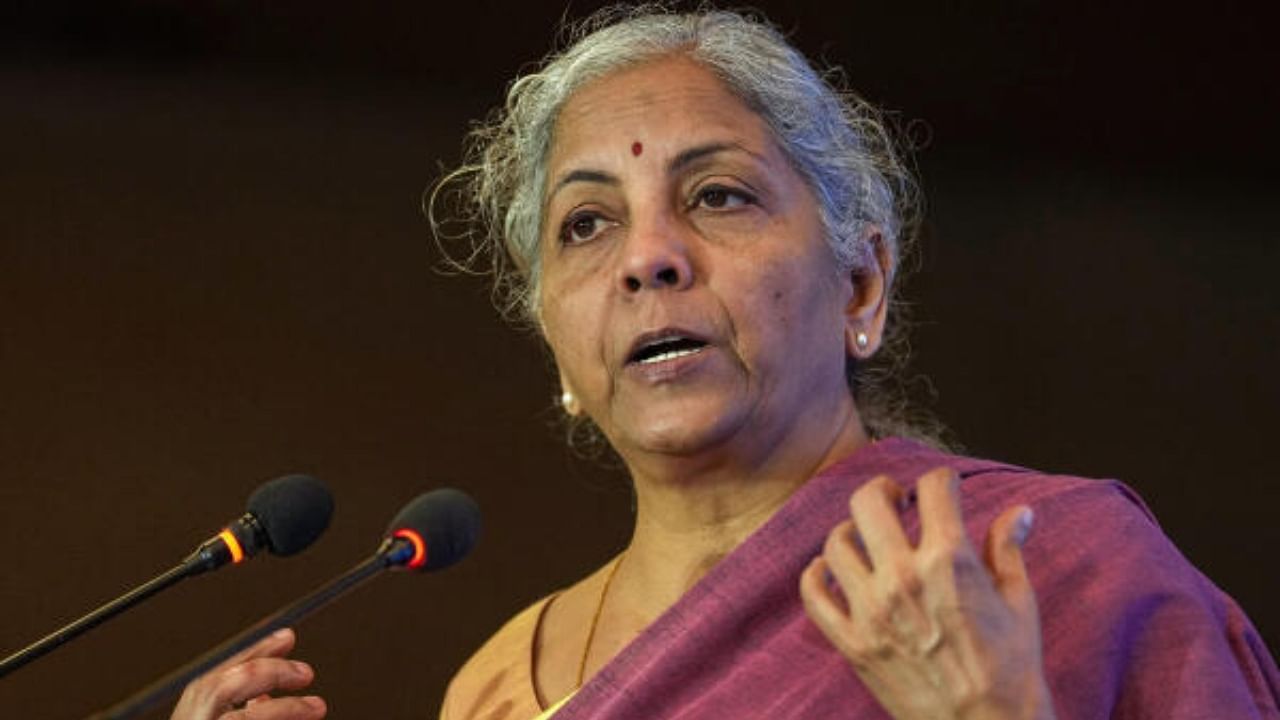
Union Finance Minister Nirmala Sitharaman.
Credit: PTI File Photo
Bengaluru: When Finance Minister Nirmala Sitharaman rises to present the 2024 Union Budget at 11 am on 23rd July, she may perhaps be mindful of the record she will set: presenting seven consecutive budgets.
That, however, will be a secondary consideration. As the Narendra Modi government finds itself with a greater fiscal breathing space than previously expected, the first budget of its third term is a much anticipated one among industry, markets and citizens.
Expectations are that thanks partly to the bumper Rs 2.11-lakh crore dividend paid by the Reserve Bank of India to the government, Sitharaman may be able to provide tax relief to the salaried classes, bring down the cost of housing loans, announce a cash transfer scheme for poor urban women, increase the allocation for infrastructure spending and welfare schemes and expand the production-linked incentive (PLI) scheme to cover more sectors.
However, beyond PLI and big-ticket infrastructure projects, details are scarce as to how the Finance Minister will tackle the biggest challenge facing the Indian economy: job creation.
“The government should focus on adherence to fiscal prudence and continue on the fiscal consolidation path, but at the same time refrain from obsessing too much over the fiscal stance as it may come in the way of long-term sustainable growth path,” said Soumya Kanti Ghosh, group Chief Economic Advisor, State Bank of India, and member of the Sixteenth Finance Commission.
In a recent report, Ghosh argued that the budget needs to announce an overhauled mechanism of minimum support price to support more crops and also sought parity on the taxation front for bank deposits.
“We think the budget will balance economic imperatives with political ones. In terms of the deficit, this would mean the government using the windfall from the RBI dividend and higher tax revenues to fund higher spending, rather than reducing the deficit from the interim budget estimate, which already suggested accelerated consolidation,” said Shreya Sodhani, Regional Economist, Barclays.
In the interim budget, Sitharaman had set a fiscal deficit target of 5.1% of the GDP, and most economists expect that to be unchanged in the full budget. The fiscal deficit, or budget deficit, is the difference between a government’s revenue and expenditure, when the latter is higher, and is an important indicator of any administration’s financial health.
One of the most pressing demands from stakeholders has been for tax sops for the middle class, which could be in the form of either raising the basic exemption limit, or rejigging the tax brackets.
“To help sustain consumption growth and lighten the burden of consumers due to elevated prices in recent years, the government may increase the limit under standard deductions of the new tax regime. In order to promote savings, exemption under 80C in the old tax regime may also be enhanced,” said Sonal Badhan, Economist at Bank of Baroda.
Badhan said that to encourage people to buy homes, tax concession on interest paid could be increased and custom duties on finished products of certain items may again be raised to correct the inverted duty structure.
Corporate India representatives have also sought that the focus on capital expenditure be continued, along with the expansion of production-linked incentive scheme.
“The share of capital expenditure in total spending will likely still be the highest since FY04-05, maintaining the government's policy over the past five years of focusing on capital expenditure, while also increasing welfare spending,” Sodhani said. In the interim budget, the centre’s capital (or infrastructure) spending target was a record Rs 11.11 lakh crore.
As reported by DH earlier, Sitharaman may also announce a cash-transfer scheme for urban women. Pushing consumption among the urban lower-income group is a priority for the government as household consumption still remains relatively subdued.
There is also a political imperative for Sitharaman to present a budget which pleases most, if not all sections of society.
The start to Modi’s third term has not been smooth. Entrance examination delays and cancellations, controversy regarding the Agniveer scheme, train accidents, failing infrastructure at key airports, and repeated encounters between security forces and militants in Kashmir, have all dominated the headlines. Even key allies are asking for windfall sums of money in the budget.
Over to Sitharaman and her team of key policymakers in North Block.
Highlights - Great expectations The FM may announce a cash-transfer scheme for urban women; increase allocation for infra spending, welfare schemes and expand the PLI scheme To encourage people to buy homes, tax concession on interest paid could be increased Sitharaman had set a fiscal deficit target of 5.1% of GDP, and most economists expect that to be unchanged There is also a political imperative for Sitharaman to present a budget which pleases most, if not all sections of society
The government should focus on adherence to fiscal prudence and continue on the fiscal consolidation path but at the same time refrain from obsessing too much over the fiscal stance as it may come in the way of long-term sustainable growth pathSoumya Kanti Ghosh group Chief Economic Advisor State Bank of India
Union Budget 2024 | Making a record for any Finance Minister, Nirmala Sitharaman will be presenting her 7th Union Budget on July 23, 2024 under the Modi 3.0 government. While inflation has burnt a hole in the pockets of 'aam janata', will this Budget spell relief for Indians? Track the latest coverage, live news, in-depth opinions, and analysis only on Deccan Herald. Also follow us on WhatsApp, LinkedIn, X, Facebook, YouTube, and Instagram.